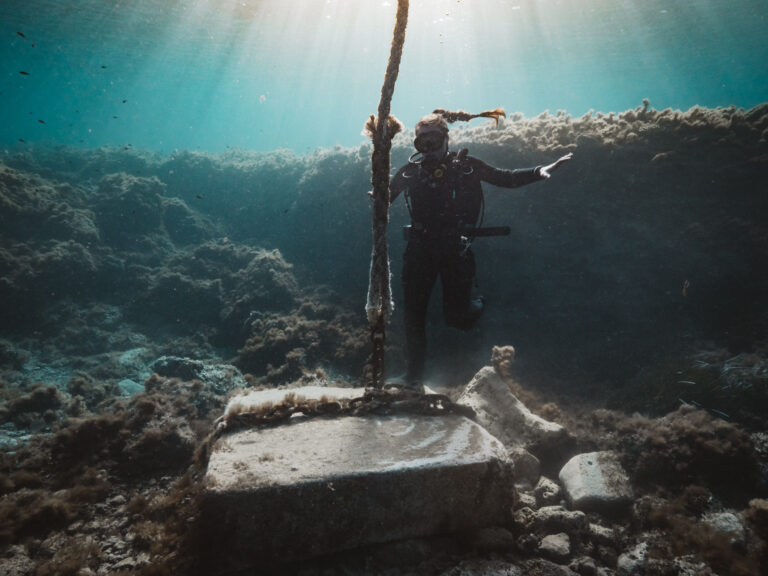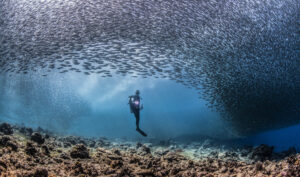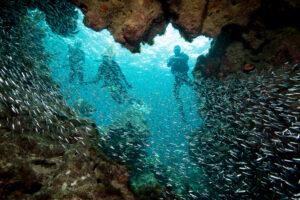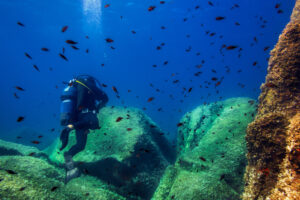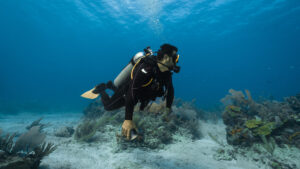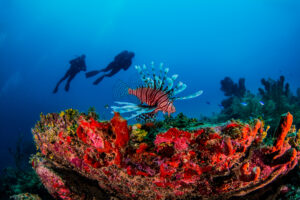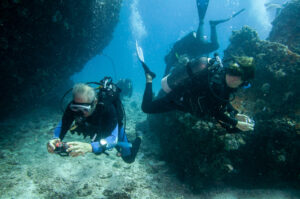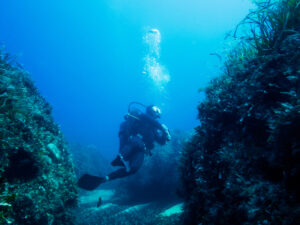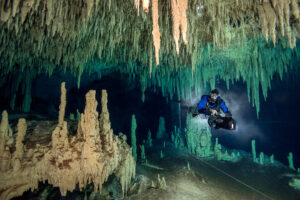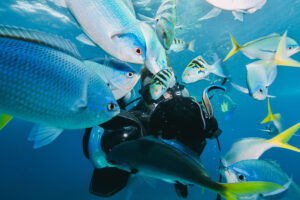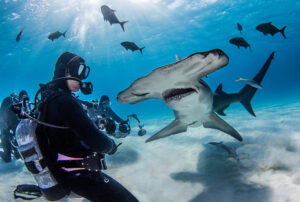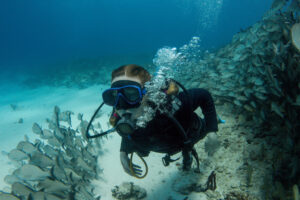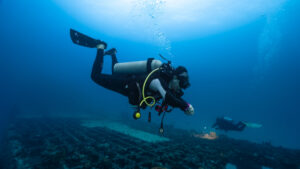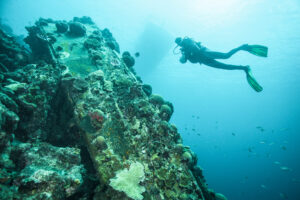What is a Certification Card (C-card)?
A C-card, or certification card, is a plastic identification card issued to scuba divers by recognized certification agencies as proof of their successful completion of diver training and the necessary experience required for a specific level of certification. As scuba diving is a specialized activity that demands comprehensive knowledge, practical skills, and strict adherence to safety procedures, a C-card serves as a testament to a diver’s qualifications and competence. Divers may need to present their C-card when booking a dive trip, renting scuba equipment, or filling dive tanks.
Certification Agencies and Levels
There are numerous scuba diving certification agencies worldwide, with some of the most prominent ones being PADI (Professional Association of Diving Instructors), SSI (Scuba Schools International), and NAUI (National Association of Underwater Instructors). Each agency has its own set of training standards, courses, and certification levels, which are generally recognized and accepted globally.
Typical certification levels include:
Open Water Diver (OWD) or Scuba Diver
This entry-level certification allows divers to dive up to 18 meters (60 feet) in depth, accompanied by a certified buddy.
Advanced Open Water Diver (AOWD)
This certification enables divers to explore deeper depths of up to 30 meters (100 feet) and engage in various specialized diving activities, such as night diving, wreck diving, or underwater navigation.
Rescue Diver
Divers at this level are trained in advanced rescue techniques and can assist in managing diving emergencies.
Divemaster
This professional certification allows individuals to work as dive guides and assist dive instructors during training sessions.
Instructor
At this level, divers are certified to teach various diving courses and issue certifications to students.
The Importance of Certification Cards
C-cards play a critical role in the scuba diving community, ensuring that divers possess the necessary skills and knowledge to dive safely and responsibly. The importance of C-cards can be seen in the following aspects:
Safety
Scuba diving can be a hazardous activity if proper training and safety protocols are not followed. By requiring divers to present their C-card, dive operators can verify that individuals have received the necessary training and are qualified to participate in the dive.
Liability
Dive operators are responsible for the safety of their customers. Verifying that divers have the appropriate certification helps minimize the risk of accidents and potential legal issues stemming from negligence.
Environmental Conservation
Well-trained divers are more likely to respect and preserve the fragile underwater ecosystems they explore. Requiring C-cards helps ensure that divers are aware of best practices for protecting marine life and habitats.
Maintaining and Updating Your Certification Card
It is essential for divers to keep their C-card up to date and in good condition. Many certification agencies now offer digital C-cards, allowing divers to store their certification information on their smartphones or other electronic devices. This convenient option reduces the risk of losing or damaging a physical card and provides instant access to certification details.
Divers should also consider maintaining a logbook, which serves as a record of their diving experiences, including dive sites, depths, and conditions. Some certification agencies require divers to present their logbook alongside their C-card when participating in advanced courses or when seeking additional certifications.
Continuing Education and Specialized Certifications
Scuba diving is a dynamic sport, and there is always more to learn. As divers gain experience, they may wish to pursue additional training to enhance their skills or to specialize in specific types of diving. Examples of specialized certifications include:
Nitrox Diver
This certification allows divers to use enriched air nitrox (EANx), which contains a higher percentage of oxygen than regular air, extending bottom times and reducing the risk of decompression sickness. 2. Technical Diver: Technical diving involves more complex and challenging dives, such as diving to greater depths or exploring caves and wrecks. This certification requires additional training in advanced decompression techniques, gas management, and the use of specialized equipment.
Underwater Photographer or Videographer
These certifications focus on developing skills and techniques to capture high-quality underwater images and videos, encompassing aspects such as lighting, composition, and post-processing.
Marine Life Identification and Conservation
Divers with a passion for marine biology and ecology can pursue certifications that teach them how to identify various marine species, understand their behaviors, and contribute to conservation efforts.
The Role of C-cards in the Diving Community
The C-card system plays a pivotal role in fostering a culture of safety and responsibility within the scuba diving community. By ensuring that divers have the appropriate training and experience for their chosen activities, certification agencies and dive operators help minimize the risk of accidents and promote environmentally responsible diving practices. Furthermore, the C-card serves as a badge of accomplishment, motivating divers to continue learning and developing their skills.
Key Takeaways
The C-card is an indispensable tool in the world of scuba diving, representing a diver’s achievements, qualifications, and commitment to the sport. As a testament to a diver’s competence, the C-card is essential when booking dive trips, hiring equipment, or filling dive tanks. By upholding the standards set by certification agencies and fostering a sense of responsibility among divers, the C-card system contributes to a safer, more knowledgeable, and environmentally conscious diving community. Whether a diver is just beginning their underwater journey or is an experienced professional, the C-card remains a critical component of their scuba diving adventure.

